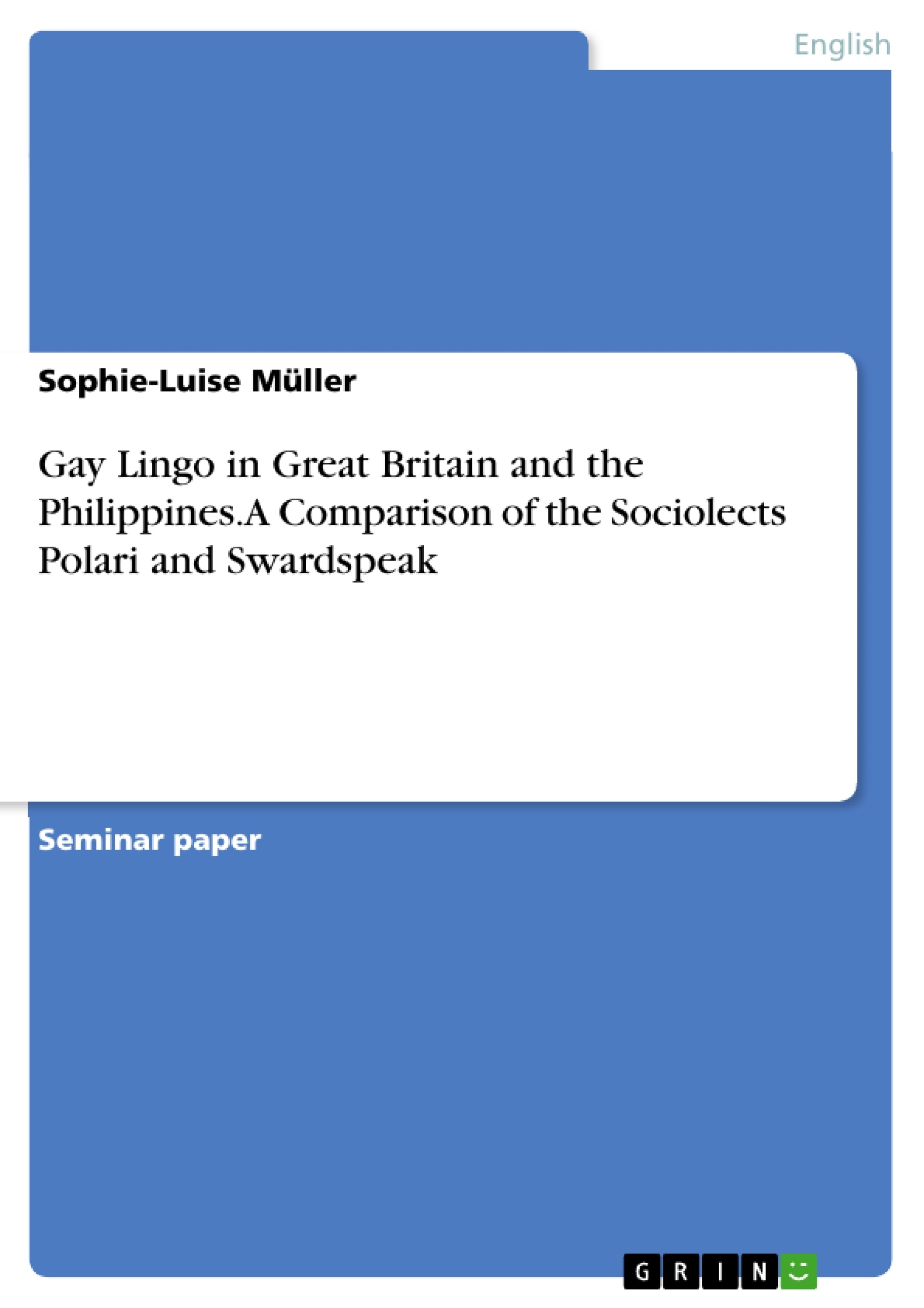As LGBTQ rights were not yet established in Western countries, queer people had to fear discrimination or even prosecution. To express their ‘unnormal’ sexual identities, gay subcultures were formed, and language varieties, known as gay lingo or gay slang, served as a secret form of communication, and a reinforcement of gay identity within these communities. In Great Britain, mainly London, an anti-language called Polari emerged and was spoken especially in the 1950’s and 60’s (Baker 2002). As homosexual acts under certain circumstances were decriminalized in the United Kingdom, the slow decline of the anti-language began until it vanished almost completely (Baker 2002). Another gay lingo found in the Philippines, referred to as Swardspeak, emerged in the 1970’s, and contrary to Polari, is still actively spoken today. I will analyze how both language varieties compare to one another, and why they progressed differently. The essay will examine what distinguishes slang from other language varieties, will compare the linguistic features and sociolinguistic background of both varieties, and lastly will scrutinize the sociohistorical differences of Great Britain and the Philippines to explain why Swardspeak is still spoken, while Polari is a ‘dead’ variety.
Table of Contents
- Introduction
- Slang
- Polari
- Swardspeak
- Comparison of Linguistic Features
- Sociohistorical Background
- Great Britain
- The Philippines
Objectives and Key Themes
This essay analyzes the similarities and differences between two gay lingos, Polari and Swardspeak, exploring their sociolinguistic backgrounds and reasons for their differing development. The essay also examines the unique characteristics of slang and anti-language, focusing on how they function as a means of communication and identity construction within marginalized communities.
- The nature and function of slang and anti-language
- The sociohistorical contexts of Polari and Swardspeak
- The linguistic features of Polari and Swardspeak
- The role of slang in identity formation within LGBTQ communities
- The reasons behind the decline of Polari and the continued use of Swardspeak
Chapter Summaries
- Introduction: This chapter introduces the concept of gay lingo as a form of secret communication and identity construction within LGBTQ communities. It highlights the historical context of Polari in Great Britain and Swardspeak in the Philippines, setting the stage for a comparative analysis of these language varieties.
- Slang: This chapter defines slang and anti-language, drawing on the work of Jonathan Green and Paul Baker. It discusses the reasons for using slang, emphasizing its role in concealing identity and communication within marginalized groups. This section lays the groundwork for the analysis of Polari and Swardspeak.
- Polari: This chapter delves into the origins and characteristics of Polari, tracing its roots to other slang varieties and highlighting its unique vocabulary and linguistic features. It discusses how Polari served as a means of identity construction within the gay subculture of Great Britain, emphasizing its use in expressing sexual orientation and gender identity.
Keywords
This essay explores the topics of gay lingo, sociolects, anti-language, Polari, Swardspeak, LGBTQ communities, identity construction, linguistic features, sociohistorical background, and the role of language in marginalized groups.
- Arbeit zitieren
- Sophie-Luise Müller (Autor:in), 2018, Gay Lingo in Great Britain and the Philippines. A Comparison of the Sociolects Polari and Swardspeak, München, GRIN Verlag, https://www.hausarbeiten.de/document/465021


